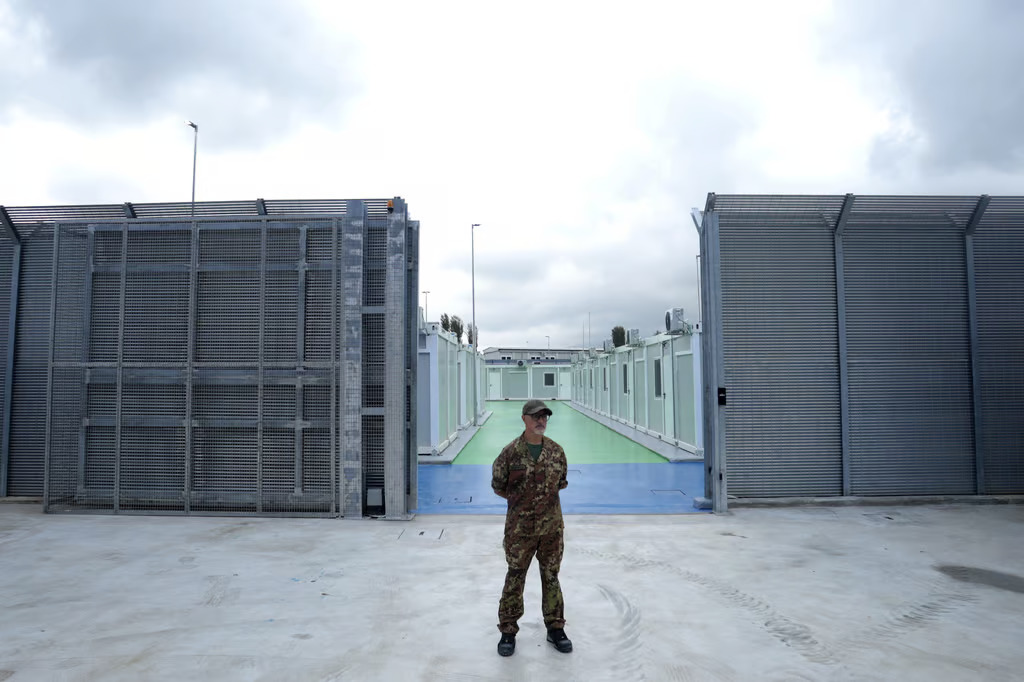Italian Prime Minister Giorgia Meloni’s ambitious plan to manage Europe’s migration crisis by establishing detention and processing centers in Albania has become a symbol of mismanagement and controversy. Despite its grand unveiling as a pioneering solution, the project has devolved into a costly and ineffective endeavor, leaving the facilities nearly empty and the staff with little to do.
Launched in October 2024 with a €67.5 million investment, the initiative aimed to intercept and process asylum-seekers in Albania. However, the scheme quickly faltered when Italian immigration judges ruled it unlawful, forcing the return of the first group of migrants within a week. Since then, the centers have remained largely unoccupied, with Italian personnel stationed in Albania left idle.
Reports from the Gjadër detention camp and the Shëngjin reception center paint a bleak picture. Italian police stationed at the sites have resorted to rescuing stray dogs and sunbathing to pass the time. Meanwhile, local media highlight the stark contrast between the remote, deteriorating Gjadër camp and the luxurious lifestyle enjoyed by officers at Shëngjin’s five-star resort.
Critics argue the plan was doomed from the start. European Parliament Member Anna Strolenberg noted that Italy processes fewer than 3,000 migrants annually, yet the Albanian centers were designed to handle that number each month. Additionally, the facilities are already showing signs of neglect, with water leaks and structural issues raising questions about their long-term viability.
Despite these challenges, Meloni’s plan has received praise from some European leaders, including European Commission President Ursula von der Leyen, who called it an “innovative solution.” However, skeptics like Strolenberg believe the project provides false hope, potentially polarizing migration debates further.
For Meloni, the political narrative remains favorable. Supporters blame judicial opposition for the project’s setbacks, portraying her as a leader hindered by progressive-leaning judges. This framing may shield her from criticism even if the centers ultimately fail to fulfill their intended purpose.
As the European Union awaits a critical ruling from its Court of Justice on the legality of third-country processing, the future of Meloni’s Albanian migrant centers remains uncertain. What is clear, however, is that the project has so far failed to deliver on its promises, leaving empty buildings and frustrated personnel in its wake.

